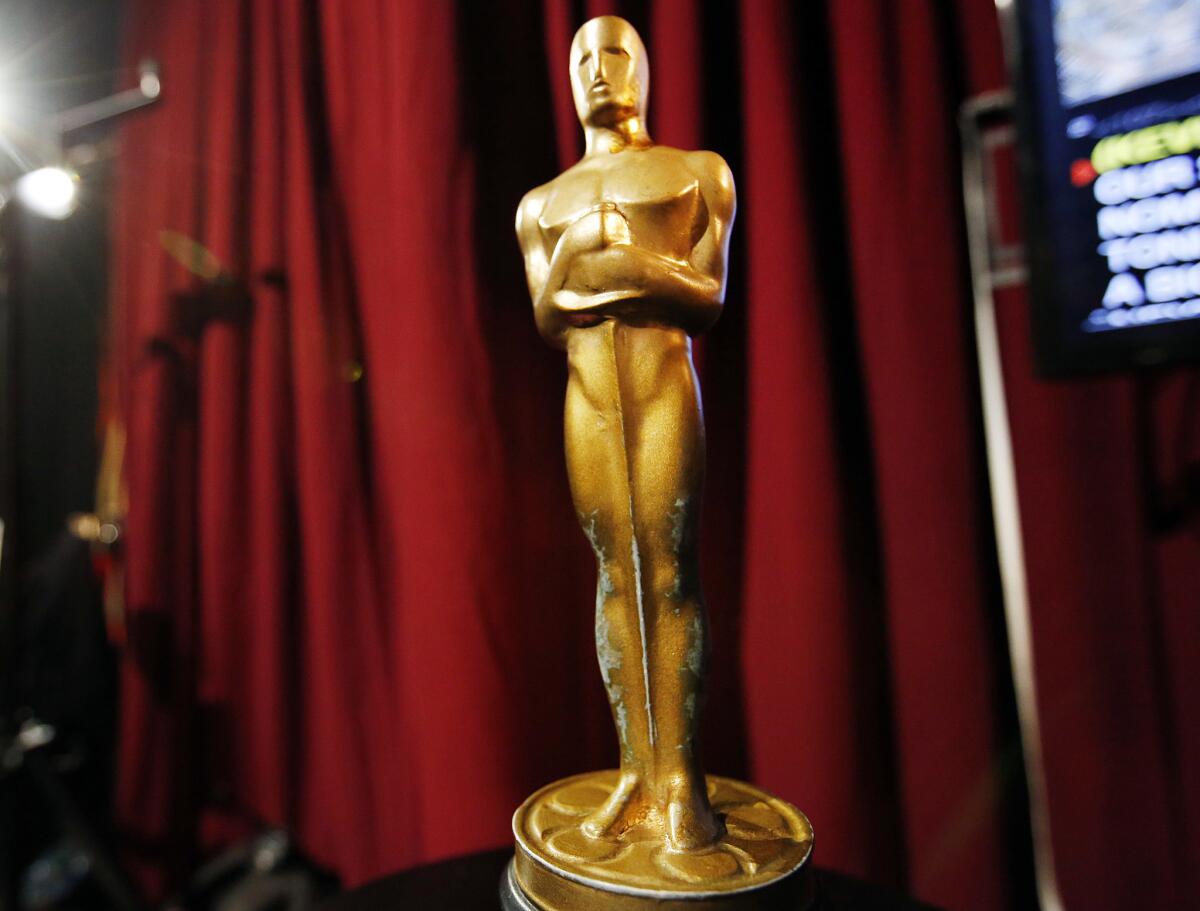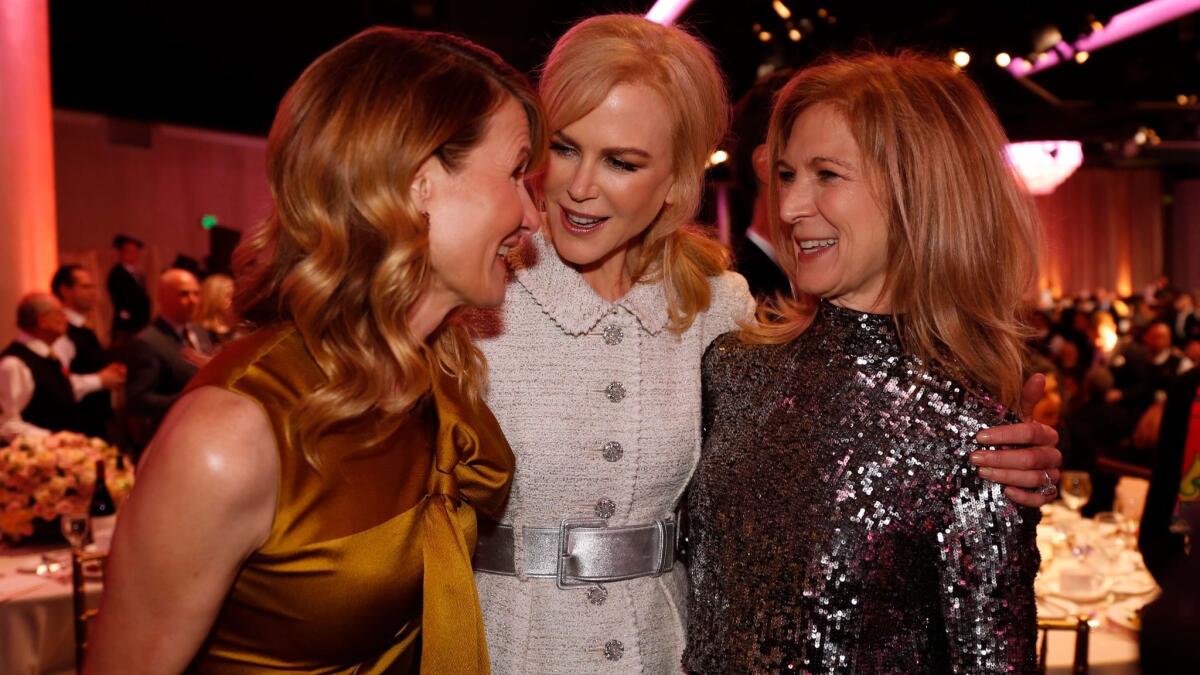Motion picture academy outlines new standards of conduct for the post-Weinstein era

As this year’s Oscar season heats up, along with the usual questions about who’s up and who’s down in the Academy Awards horse race, there are likely to be other, thornier questions lingering in the air at cocktail parties and on red carpets.
Since its founding 90 years ago, the Academy of Motion Picture Arts and Sciences has based membership in the group solely, at least in theory, on achievements in the world of film. But as Hollywood’s most exclusive organization wrestles with the new realities of the post-Harvey Weinstein era, it seems behavior offscreen may now be taken into consideration as well.
With shock waves from a series of sexual harassment scandals continuing to reverberate across the entertainment industry and beyond, the academy sent a letter on Wednesday to its roughly 8,500 members outlining new standards of conduct that they will be expected to uphold. These new standards, the academy’s leadership said, reflect and codify the organization’s values of “respect for human dignity, inclusion, and a supportive environment that fosters creativity.”
The academy’s 54-member board of governors, which includes such luminaries as Steven Spielberg, Kathleen Kennedy, Tom Hanks and Whoopi Goldberg, approved the standards in a meeting Tuesday night. The move follows the board’s decision on Oct. 14 to expel Weinstein from the academy after multiple allegations of sexual misconduct were made against the film mogul.
“There is no place in the Academy for people who abuse their status, power or influence in a manner that violates recognized standards of decency,” the two-paragraph statement reads in part. “The Academy is categorically opposed to any form of abuse, harassment or discrimination on the basis of gender, sexual orientation, race, ethnicity, disability, age, religion, or nationality.”
The new standards were developed by a special task force — led by David Rubin, a governor in the academy’s casting branch — that was created in the wake of the Weinstein scandal.
In recent weeks, the task force consulted with professors of ethics, business, philosophy and law from Georgetown, Harvard, Notre Dame and Stanford, along with experts in human resources and sexual harassment. In crafting the standards, academy leaders also reviewed the codes of conduct of other organizations including UCLA and met with counterparts at the Television Academy and the British Academy of Film and Television Arts.
According to the academy, it will be up to the board of governors — which has very rarely taken disciplinary action against members over the years — to enforce the new standards.

Much remains to be done.
— Dawn Hudson, Academy CEO
“If any member is found by the Board of Governors to have violated these standards or to have compromised the integrity of the Academy by their actions, the Board of Governors may take any disciplinary action permitted by the Academy’s bylaws, including suspension or expulsion,” the statement notes.
To what extent the new standards could lead to further potential actions against particular members remains to be seen. In a letter to members in October, academy President John Bailey said that the group “cannot, and will not, be an inquisitorial court, but we can be part of a larger initiative to define standards of behavior, and to support the vulnerable women and men who may be at personal and career risk because of violations of ethical standards by their peers.”
Indeed, in the run-up to Weinstein’s expulsion, some within the organization wrestled with the implications of setting a precedent that would require the academy to police its members’ behavior going forward. Other Hollywood figures who have been embroiled in sexual misconduct controversies — including Bill Cosby, Roman Polanski, Kevin Spacey and Brett Ratner — remain members of the academy.
Still, the academy leadership — which has taken dramatic steps in recent years to shift the demographics of its overwhelmingly white and male membership in response to the #OscarsSoWhite controversy — clearly felt that doing nothing was simply not an option.
In introducing the new standards of conduct, academy Chief Executive Dawn Hudson noted that they represent a first step in a broader effort to ensure that the academy’s members live up to the group’s values.
“Much remains to be done,” Hudson wrote. “The task force will finalize procedures for handling allegations of misconduct, assuring that we can address them fairly and expeditiously. This process will ultimately guide the Board of Governors in assessing if certain allegations warrant action regarding membership. Those procedures will be sent to you in the new year.
“We are articulating these standards with the simple goal of fostering the kind of environment that enables and supports creativity, and furthers the Academy’s mission.”
One academy governor who asked not to be identified because they aren’t authorized to speak for the organization noted, “The statement is a start, and I think you’ll see in coming weeks that we’re taking this very seriously.” The governor continued, “It’s a complex issue and handling disciplinary cases would be tricky. But we’re not going to ignore it. It’s too important.”
Times staff writer Glenn Whipp contributed to this report.
Twitter: @joshrottenberg
ALSO
6 women sue Harvey Weinstein, and his former assistant makes new accusations
Hollywood sculpture censored after the Harvey Weinstein scandal has been returned to view
How do you apologize when accused of sexual misconduct? In Hollywood, it runs the gamut
More to Read
Only good movies
Get the Indie Focus newsletter, Mark Olsen's weekly guide to the world of cinema.
You may occasionally receive promotional content from the Los Angeles Times.











